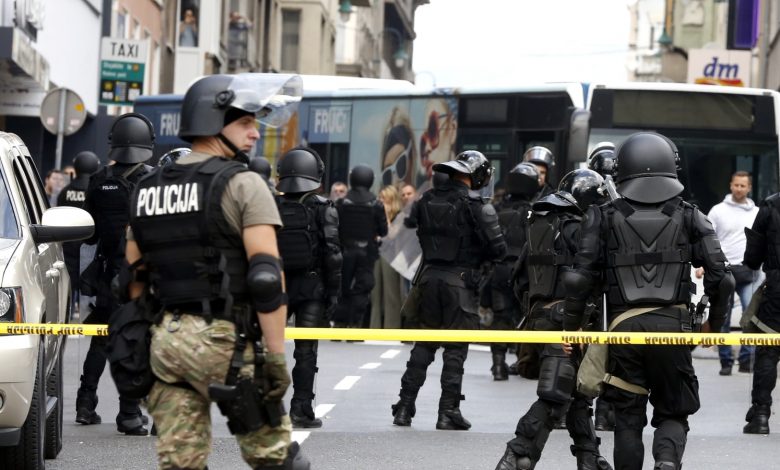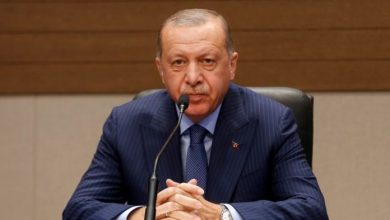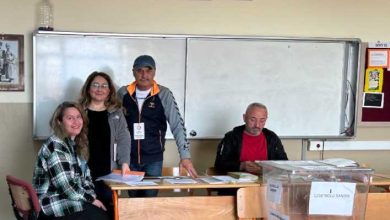Bosnian Lawyer for Arrested Turk ‘Deprived of Information’
The lawyer for a Turkish citizen who has been detained and faces extradition to Turkey said he had been prevented from offering his client a proper defence by lack of information on the charges.

The Bosnian lawyer for a Turkish school head who has been arrested as a “security threat”, and faces potential extradition, said the authorities had prevented him from presenting a proper defence.
The Court of Bosnia and Herzegovina on Thursday held a closed hearing into the case of Fatih Keskin, whose right to permanent residence in Bosnia has been cancelled by the Service for Foreigners’ Affairs.
After the hearing, his lawyer, Nedim Ademovic, told the media in front of the Bosnian State Court that he had asked the court to annul the decision by which Keskin was being held at the service’s migrant detention centre in Lukavica, near Sarajevo.
As BIRN BiH previously reported, after the Service for Foreigners’ Affairs cancelled Keskin’s permanent residence, he was arrested in Bihac, north-west Bosnia, on December 3 and then transferred to the migrant detention centre.
His lawyer said he had been prevented from presenting a proper defence by lack of due information. “We expected to receive the minimum information from the Court on why Keskin had been declared a ‘threat to national security and public order’. Unfortunately, we were unable to present an adequate defence,” Ademovic said.
He added that any documentation that Bosnia’s Security Intelligence Agency had collected and submitted to competent institutions had not been forwarded to the defence.
Ademovic said the state court should have provided the defence at least with the minimum information, despite the documents being allegedly marked confidential, so that an adequate defence could be offered.
“We can only hypothetically offer our defence from something we have neither heard nor seen”, he said, adding that he expected the Court to render a decision within the next three days.
The lawyer said that, despite the lack of information, he had presented evidence that Keskin had resided legally in Bosnia and Herzegovina and was a credible family man who had never committed any criminal offences anywhere.
The defence had also provided evidence that Keskin had not been prosecuted before in Turkey.
“We also referred to [Bosnian Security] Minister Mektic’s arguments that his passport had allegedly been cancelled. We do not have that documentation.
“We claim this is a political persecution, which was agreed on at a political level, and was practically supposed to result in Keskin’s kidnapping and deportation to Turkey by emergency procedure,” Ademovic continued.
He noted that many international human rights organisations had confirmed that people being prosecuted by Turkey for political reasons did not enjoy a fair trial in Turkey.
“I hope the Court of Bosnia and Herzegovina will take those arguments into consideration and set aside the decision to deprive Keskin of his liberty, and release him from the Immigration Centre,” he said.
“We shall prove that the deprivation of the right to liberty in Bosnia and Herzegovina was illegal and he can continue to live freely with his family, just like all of us, free citizens, in Bosnia and Herzegovina,” Ademovic added.
If not, he warned, the Keskin case had the potential to become another reason why Bosnia and Herzegovina risked being placed under investigation by the international community.
Media reports said Keskin had been the director of a school in Bihac linked to the exiled Turkish cleric Fethullah Gulen, who Ankara blames for a failed coup in 2016. [Gulen denies any connection to the failed coup.]
The college operates within the Richmond Park group of schools, which is based in Sarajevo, and is the legal successor to the Bosna Sema educational chain.
Turkey has put heavy pressure on Balkan states to close “Gulenist” institutions, arrest their leaders and send them back to Turkey to face terrorism charges.
Most countries ignore these demands, but Turkey has close links to one of the largest parties in Bosnia, the Party of Democratic Action, SDA, which represents the Bosniak community.
On the demand of Turkish President Recep Tayyip Erdogan, the Service for Foreigners’ Affairs previously cancelled residence permits of four Turkish citizens. The procedure for the withdrawal of the permits followed a visit to Bosnia by President Erdogan on July 9 this year.
However, the four were not extradited to Turkey. The Court of Bosnia and Herzegovina took the position in previous cases that it was not possible to extradite alleged Gulenists whose extradition Turkey sought because Bosnia does not consider their organisation a terrorist one.
Although Ankara says Gulen’s movement is a terrorist organisation, neither the European Union, the United Nations nor the majority of European countries do so, the court noted.
Source: balkaninsight




